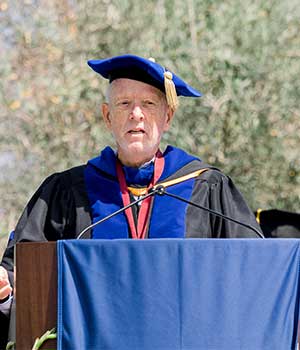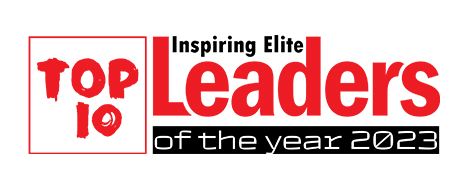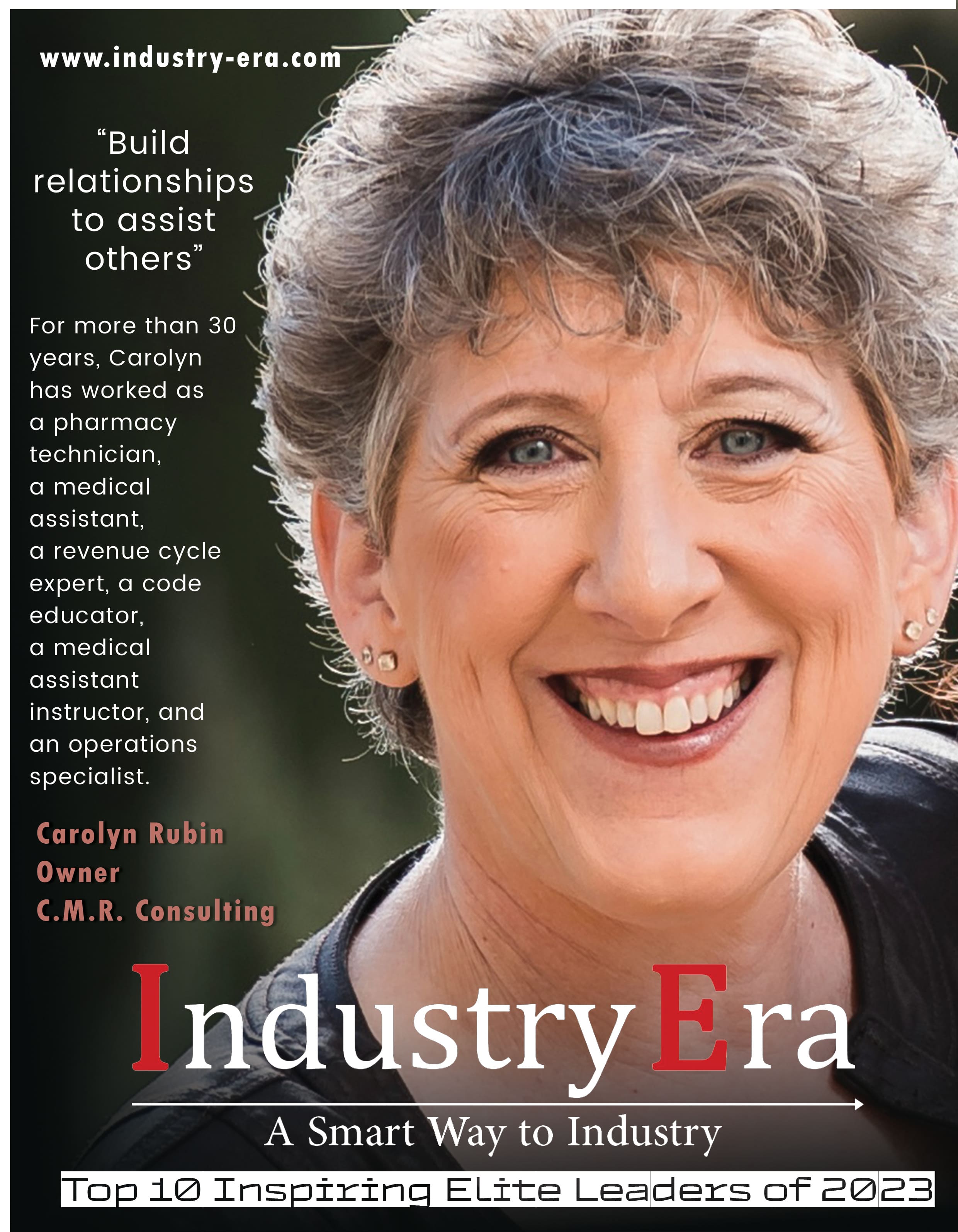
Allan Cahoon
President
Sofia University

“Focus on the change agent”
Sofia University is a private, for-profit institution with a unique educational mission to provide education for working professionals that incorporates the foundation and principles of transpersonal psychology. Allan Cahoon, as a member of the Board of Trustees, was aware of the challenges facing higher education nationwide. He observed Sofia’s enrollment declines, expenses exceeding revenues, and an upcoming reaffirmation of accreditation. When the current president left, Allan was then asked to assume the position of president. Despite the challenges, that included the pandemic, Allan was able to lead a resurgence of enthusiasm for Sofia’s mission, vision, and values among faculty, staff, and students. As an active agent of change, he was instrumental in turning the university’s numbers (both enrollment and finance) positive while also achieving a successful reaffirmation of accreditation.
When asked about leadership, Allan elucidates that it is essential to understand one's own capabilities and limitations. He figures out that books on leadership are fascinating but frequently provide a skewed view of what a successful leader must do. They provide general guidelines based on the efficacy of certain leaders, but they may not reflect the reality of the leader's situation or the leadership situation in which they find themselves. According to him, leadership entails establishing a course of action and then determining how to best mobilize the resources at their disposal to achieve the desired outcomes with regard to people, time, money, etc. Allan also suggests that to be successful as a leader, others must be committed to the agenda the leader establishes and support the necessary efforts. He learned his most valuable lessons about leadership—what not to do and which strategies were ineffective—from a failed president to whom he reported.
In light of the above and in order to ensure that the workplace feels welcoming and that all employees are satisfied, Allan assumes that it is essential to establish a supportive work culture based on five key principles. Employees have the right to know what and why something is expected of them through transparent communication. It is essential that they feel comfortable asking questions and seeking advice. Allan adds that Sofia holds quarterly "Campus Conversations," when the President and Senior Executive report on their projects and seek questions, suggestions, and advice. They also have staff and faculty meetings. In order to help employees perform at their best, they also put a lot of emphasis on employee empowerment. They support their efforts by stepping back and giving them the direction and resources they need to be successful. One thing they also do is foster the organizational culture that values creativity, experimentation, and taking risks while avoiding a blame- and failure-averse culture.They make sure to promote the growth of workplace and work-site trust by exhibiting their efforts to create a company that will strive to treat its employees fairly and that will support a culture that supports trust among their colleagues in what they do and how they do it. Not to mention, they establish and cultivate a culture of institutionalism and work-related pride and celebrate success and individual achievements.
“Sofia University, formerly known as the Institute of Transpersonal Psychology (ITP) and founded in 1975, is a private, WSCUC-accredited institution. Historically, the University’s academic emphasis has been on providing graduate degree programs in Transpersonal Psychology.”
Allan, as president, also observes that the fundamental concern with decision-making is how the choices will fit with the established mission and direction of the university. He keeps an eye on whether they support, undermine, or are not related to their strategy or objective. In his view, a leader should consult with their executive team on this and be ready to call in advisors if needed.
Their market is working professionals who want to develop their professional competence to benefit themselves, their practice, their profession, their organizations, and their communities. They hope that their students learn from their work experience and handle workplace problems. It also involves inviting like-minded international students to share cultural views and make a difference globally. Allan claims it's a niche industry and they won't compete with "comprehensive" universities. Working students view Sofia's programs as improving their skills and job prospects because they accommodate working students.
Fostering a regenerative work culture based on the five concepts mentioned, Sofia University has transformed in the past three years from an institution increasingly in debt, losing students, and facing a difficult re-accreditation to a vibrant, growing institution doubling its student enrollments, with a positive balance sheet, a composite score near two, and of its accreditation. Its commitment to change has increased employee morale. They observed that the former Sofia employees are returning to work and helping students in constructive, proactive ways.
They'll keep adding programs that fit their applied, transpersonal base and focus on working professionals' education. The Costa Mesa Campus will add residential foreign programs. They are also creating a College for Applied and Professional Studies on their Costa Mesa Campus to train local companies and institutions and foster innovation and entrepreneurship. Allan says Sofia University will evolve based on its transpersonal, working-professional demand-based learning, and international focus.
As shared by Allan, "their dedication to improving higher education is their greatest strength." "Building on their transpersonal psychological background, Sofia University commits to graduating change agents who can impact their practice, profession, and communities!" IE

Company
Management
Allan Cahoon
President
Sofia University
Description
Since 1975, Sofia University has aspired to be a leader in transformative education offering students certificates, undergraduate, and graduate programs that transcend beyond a traditional learning environment. We believe a first-rate education should do more than stimulate intellectual growth - it should offer opportunities for self-improvement, allowing students to grow and embrace all that they are capable of achieving.

